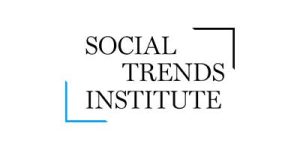Family Firms: Purpose, Economic Performance and Social Impact
IESE Madrid - March 16, 2026
The prevalence and persistence of family firms is an undisputed fact in understanding the evolution of corporate ownership around the world. Assessing their governance, purpose, and culture is essential to improve their contribution to prosperity and their capacity to address today’s global challenges — from climate transition and technological disruption to geopolitical tensions and social change.
Monday, March 16, 2026
9:15 – 9:30 Welcome & Introduction
Marco Becht, Université libre de Bruxelles and ECGI
Jordi Canals, IESE Business School
Colin Mayer, Oxford University
9:30 – 10:40 Session 1
The relevance of corporate purpose for family firms
Chair: Colin Mayer, Oxford University
Speakers:
Maurice Brenninkmeijer, COFRA Holding
Dorothy Lund, Columbia University
Belen Villalonga, NYU Stern School of Business
10:40 – 11:00 Coffee Break
11:00 – 12:10 Session 2
Family firms, shareholders and foundations
Chair: Steen Thomsen, Copenhagen Business School
Speakers:
David Reeb, National University of Singapore
Anne Sanders, University of Bielefeld
Soren Staugaard Nielsen, Ramboll Foundation
12:10 – 13:20 Session 3
Family offices, purpose and governance
Chair: Anete Pajuste, Stockholm School of Economics in Riga
Speakers:
Josh Baron, Harvard Business School
Fabian Bonnier, Bonnier Family Foundation
Tor Bonnier, Karl-Adam Bonnier Foundation
13:20 – 14:45 Lunch
14:45 – 15:55 Session 4
Family firms, innovation and performance
Chair: Jordi Canals, IESE Business School
Speakers:
Bruno Cassiman, IESE Business School
Margarita Tsoutsoura, Olin Business School
Franz Haniel, Haniel Group
15:55 – 17:05 Session 5
Family firms and sustainability
Chair: Yupana Wiwattanakantang, National University of Singapore
Speakers:
Marco Pagano, University of Naples
Randall Morck, University of Alberta
Martin Schily, Voith
17:05 – 17:20 Coffee Break
17:20 – 18:20 Session 6
Families as responsible shareholders in developing their companies: The Chairpersons’ Panel
Chair: Álvaro San Martín, IESE Business School
Speakers:
Sabina Fluxá, Iberostar, Executive Vice-Chair Person
Francisco J. Riberas, Gestamp, Chairman
Gildo Zegna, Ermenegildo Zegna, Chairman
18: 20 – 18:30 Wrap Up
Marco Becht, Université libre de Bruxelles and ECGI
Jordi Canals, IESE Business School
Colin Mayer, Oxford University
18: 45 Cocktail
The prevalence and persistence of family firms is an undisputed fact in understanding the evolution of corporate ownership around the world. Scholars, regulators and public opinion often reflect upon the evolution of common ownership or other relevant issues regarding shareholders of listed firms. Nevertheless, developing a sustainable model of capitalism requires a deeper understanding of family firms, and their governance, management, performance and impact.
Many family businesses have or had a founder with an idea, purpose or vision about its company. This is particularly true in family firms that have survived more than one generation. Many founders also had some values that helped shape the firm’s culture and the way things are done in a specific family firms. Family-controlled firms also experience some governance problems -in particular, minority shareholders- and should tackle challenges, but the overall impact of family firms on economic performance is positive.
Many corporate ownership studies have explained the persistence of family firms around the world in terms of the level of protection that national legal systems offer their shareholders. The hypothesis is that countries with higher level of protection will experience the development of efficient capital markets and the relevance and weight of family business will decline. The sustained persistence of families as majority owners of companies does not seem to fully confirm this hypothesis, even with the growing convergence of corporate governance regulation and practices, in particular, in the Western world. There may be other factors explaining this relationship, including family firms’ corporate purpose, corporate culture or the use of longer time horizons for strategic decisions.
In particular, corporate purpose has recently experienced a revival of interest and has become a driving factor of superior performance in some companies. In the face of climate, technology, geopolitical and social disruptions that many countries are experiencing, an appropriate question is whether corporate purpose in family firms can help them navigate those challenges and improve both economic performance and social impact. An additional question is whether family business, as the most persistent form of corporate ownership, can be a driver of change in society.
ECGI and its Responsible Capitalism Initiative, and IESE Business school plan this 2026 Conference to explore deeper the notion, role, effects of family firms on governance, strategic decisions, performance and impact, as well as the effects of corporate purpose and culture on family firms. A special area of interest is how purpose and culture evolve when the firm’s ownership passes from one generation to the next.
This Conference will address these issues from diverse academic perspectives: corporate finance, corporate governance, corporate law, sociology and management of family firms. This debate will involve leading scholars in these areas and distinguished family business leaders and investors.
This ECGI IESE Conference will be held on March 16, 2026 at IESE, Madrid Campus, in collaboration with the Instituto de la Empresa Familiar, the IESE Chair of Family-Owned Business, and The Social Trends Institute.
 |
 |
The IESE Center for Corporate Governance and the European Corporate Governance Institute bring senior academics and thought-leaders in business to discuss relevant corporate governance topics through conferences.
With the collaboration of the:
 |
 |
With the support of:
 |
 |




























